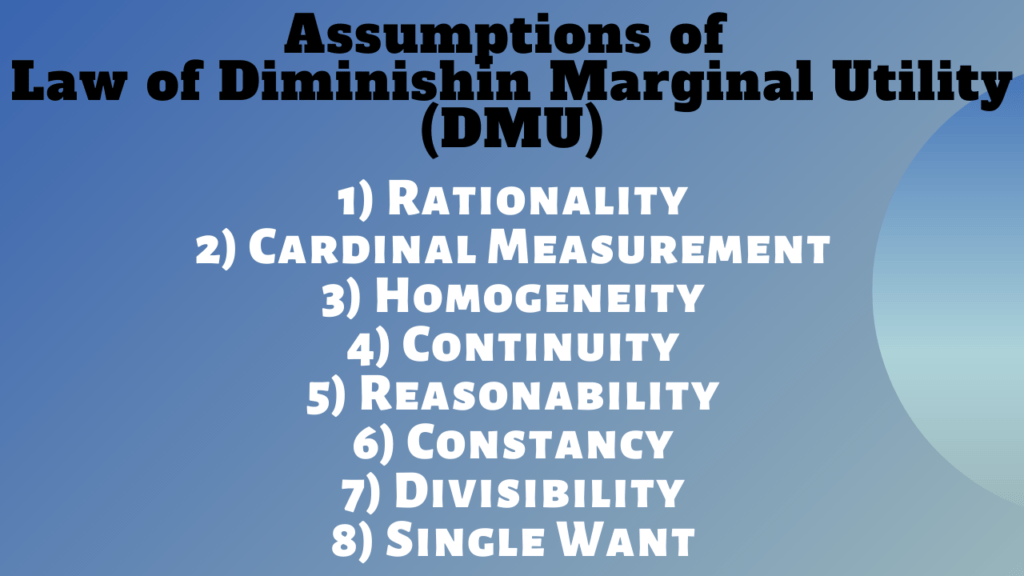Assumptions of Law of Diminishing Marginal Utility (DMU) | Free Economics Articles
Assumptions of Law of Diminishing Marginal Utility
What are the Assumptions of the law of diminishing marginal utility?
Introduction:
This law was first proposed by Prof. Gossen but was discussed in detail by Prof. Alfred Marshall in his book ‘Principles of Economics’ published in 1890. The law of diminishing marginal utility is universal in character. It is based on the common consumer behaviour that utility derived diminishes with the reduction in the intensity of a want.
Statement of the Law of DMU:
According to Prof. Alfred Marshall, “Other things remaining constant, the additional benefit which a person derives from a given increase in his stock of a thing, diminishes with every increase in the stock that he already has.”
In other words, a marginal utility that any consumer derives from successive units of a particular commodity goes on diminishing as his or her total consumption of that commodity increases. In short, the more of a thing you have, the less you want to have more of it.
- Microeconomic Definition | Historical Review of Microeconomics
- Scope Or Nature of Microeconomics
- Exceptions of Law of Diminishing Marginal Utility
- Criticism of Law of Diminishing Marginal Utility

Assumptions of the Law of Diminishing Marginal Utility
The following are the assumptions of the law of diminishing marginal utility:
1) Rationality:
The consumer is assumed to be rational. It means that his behavior is normal and he tries to maximize his satisfaction.
2)Cardinal measurement:
The law assumes that utility can be cardinally or numerically measured. Hence, mathematical operations are easily possible to know and compare the utility derived from each unit of a commodity.
3) Homogeneity:
All units of a commodity consumed are exactly homogeneous or identical in size, shape, colour, taste, etc.
4) Continuity:
All units of a commodity are consumed in quick succession without any lapse of time.
5) Reasonability:
All the units of a commodity consumed are of reasonable size. They are neither too big nor too small.
6) Constancy:
All the related factors like income, tastes, habits, choices, likes, and dislikes of a consumer should remain constant. The marginal utility of money is also assumed to be constant.
7) Divisibility:
The law assumes that the commodity consumed by the consumer is divisible so that it can be acquired in small quantities.
8) Single want:
A given commodity can satisfy a single want of a person. The law assumes an experience of a single want that is completely satiable at a given point of time.
Other Related Topics:


